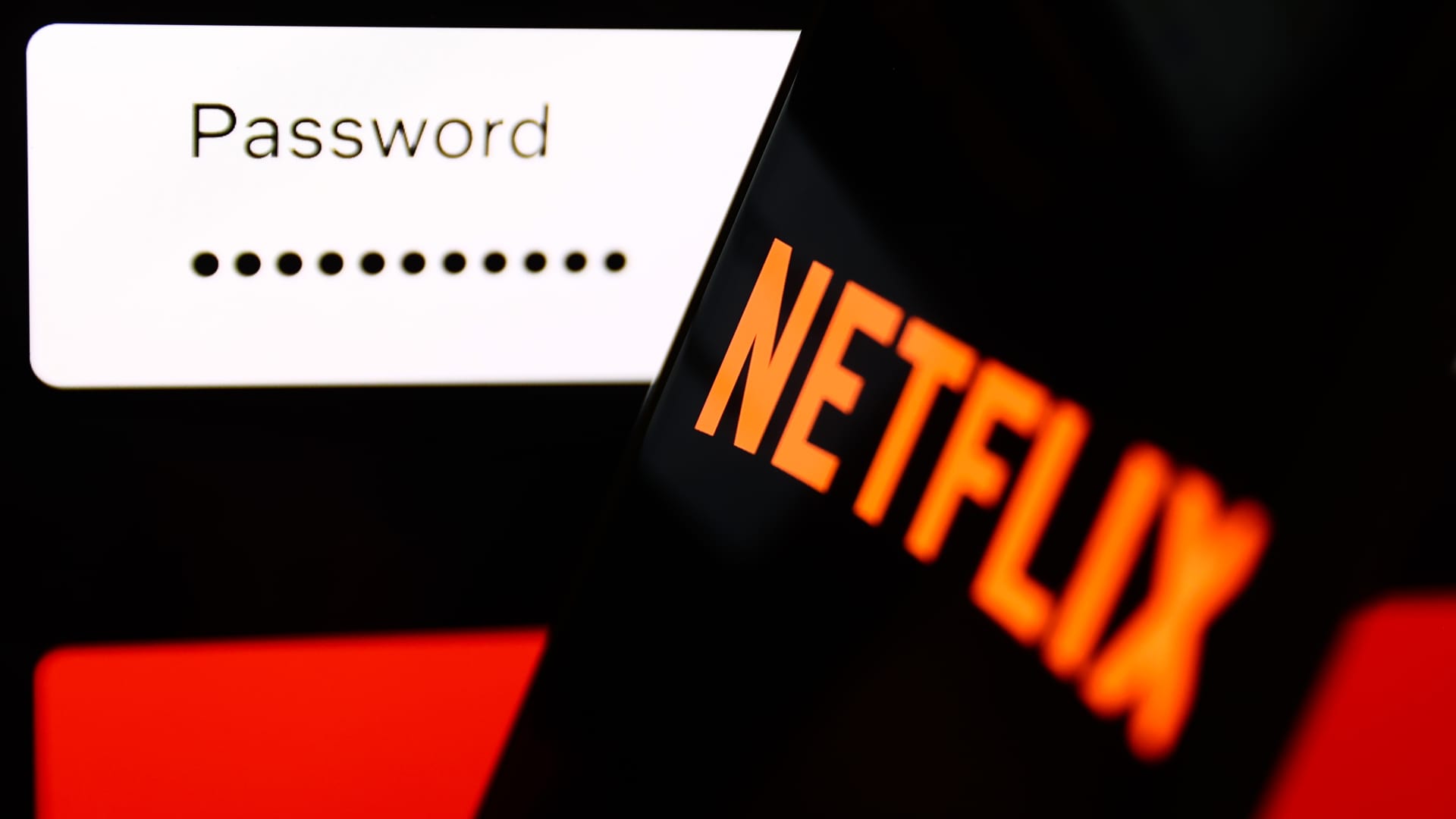Netflix sign in page displayed on a laptop sscreen and Netflix logo displayed on a phone screen are seen in this illustration photo taken in Krakow, Poland on January 2, 2023.
Jakub Porzycki | Nurphoto | Getty Images
Netflix on Wednesday outlined its long-awaited password-sharing guidelines, starting first with users in Canada, New Zealand, Portugal and Spain, marking the latest step in the company’s telegraphed crackdown.
The streaming company said users in those countries will be asked to set a “primary location” for their Netflix accounts and will be allowed two “sub accounts” for users who don’t live in that home-base household. Beyond that, the company will charge a monthly fee per extra user: CA$7.99 in Canada, NZ$7.99 in New Zealand, 3.99 euros in Portugal and 5.99 euros in Spain.
“Today, over 100 million households are sharing accounts — impacting our ability to invest in great new TV and films,” said Chengyi Long, the company’s director of product innovation.
Netflix is testing its password-sharing restrictions outside of the U.S. before rolling them out domestically in March. The price in Canada could forecast what it will ultimately charge in the program’s U.S. debut.
The changes announced Wednesday will roll out right away, along with a new “Manage Access and Devices” page that will allow users to curate who has access to their accounts.
If an account has more than the maximum profiles allowed, the user will be able to transfer surplus profiles to a new account and save the additional fee. The transferred profiles will maintain all of their personalized recommendations and viewing history from the original account.
Netflix said it plans to revisit and refine the new account management page based on user feedback.
The user guidelines come after the streamer posted a huge beat in subscriber numbers for its fourth quarter and announced that former CEO Reed Hastings would step down.
The company announced last fall that it would limit password sharing with the stalling of subscriber growth in its U.S.-Canada region.

